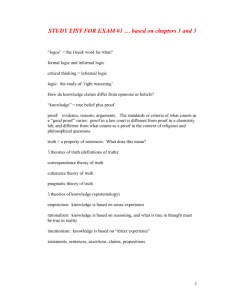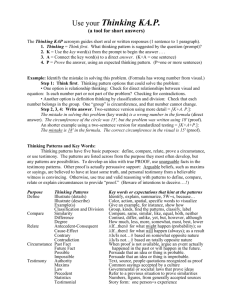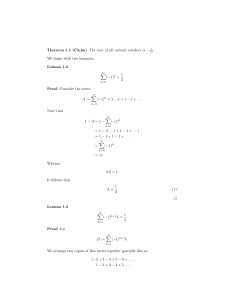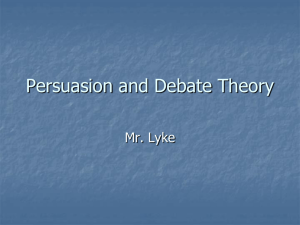Homework 10
advertisement
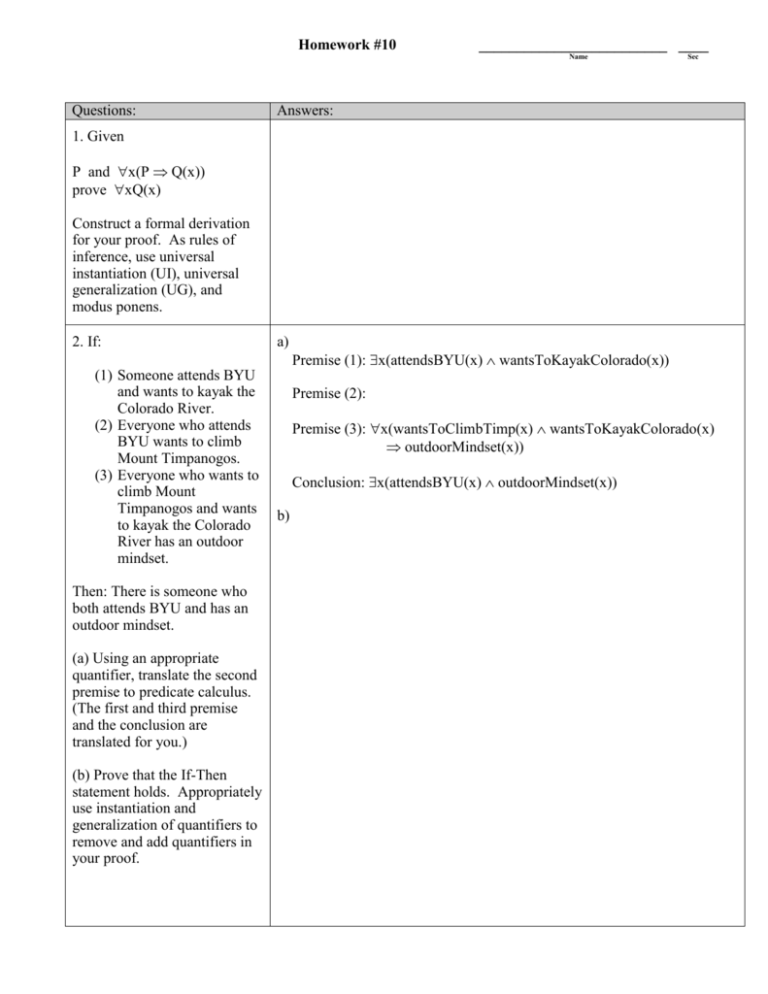
Homework #10 _________________________ ____ Name Questions: Sec Answers: 1. Given P and x(P Q(x)) prove xQ(x) Construct a formal derivation for your proof. As rules of inference, use universal instantiation (UI), universal generalization (UG), and modus ponens. 2. If: a) Premise (1): x(attendsBYU(x) wantsToKayakColorado(x)) (1) Someone attends BYU and wants to kayak the Colorado River. (2) Everyone who attends BYU wants to climb Mount Timpanogos. (3) Everyone who wants to climb Mount Timpanogos and wants to kayak the Colorado River has an outdoor mindset. Then: There is someone who both attends BYU and has an outdoor mindset. (a) Using an appropriate quantifier, translate the second premise to predicate calculus. (The first and third premise and the conclusion are translated for you.) (b) Prove that the If-Then statement holds. Appropriately use instantiation and generalization of quantifiers to remove and add quantifiers in your proof. Premise (2): Premise (3): x(wantsToClimbTimp(x) wantsToKayakColorado(x) outdoorMindset(x)) Conclusion: x(attendsBYU(x) outdoorMindset(x)) b) 3. Prove: If (x(ball(x) passes(“Stockton”, x, y) score(y)) ) score(y) then x(ball(x) passes(“Stockton”, x, “Malone”). Give a formal derivation for your proof and justify each step. Note: The free variable y is implicitly universally quantified. 4. Let A and B be sets. Prove: If x A and A B then x B Give a formal derivation for your proof. Use UI and modus ponens in your proof. Note: The definition of subset (or equal) for sets A and B is: A B x(x A x B). Just like any equivalence law, we can always use this (and any other definition) as a derivation rule. We usually justify this type of law by saying “by definition.” 5. Prove: if P(x) Q(y) R(x, y) and P(z) Q(w) then R(1, x). Use unification in your proof. 6. Use resolution to prove: if (P R) (Q R) (P Q) then R Use the support strategy. 7. Use resolution to prove: if (P Q) ((R Q) R) then P Construct your proof as follows. a) Convert the premise to conjunctive normal form. b) Using the support strategy, give a resolution proof.
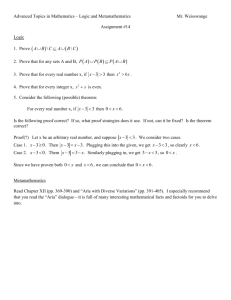
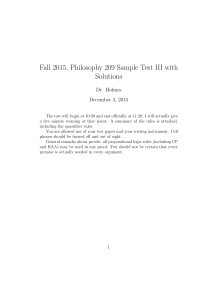
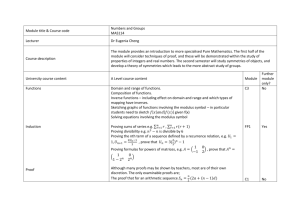
![Question 1. Let y be a positive number. Prove that [ ] = [ ]. Proof. If y](http://s3.studylib.net/store/data/007965868_1-f602f124542fbf21e7243a49f380ea21-300x300.png)
